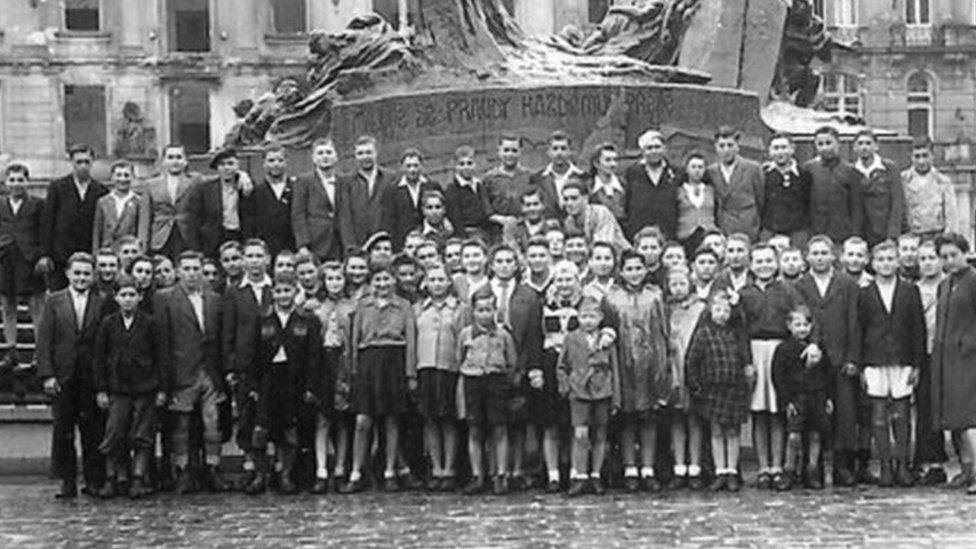Windermere Children memorial garden unveiled
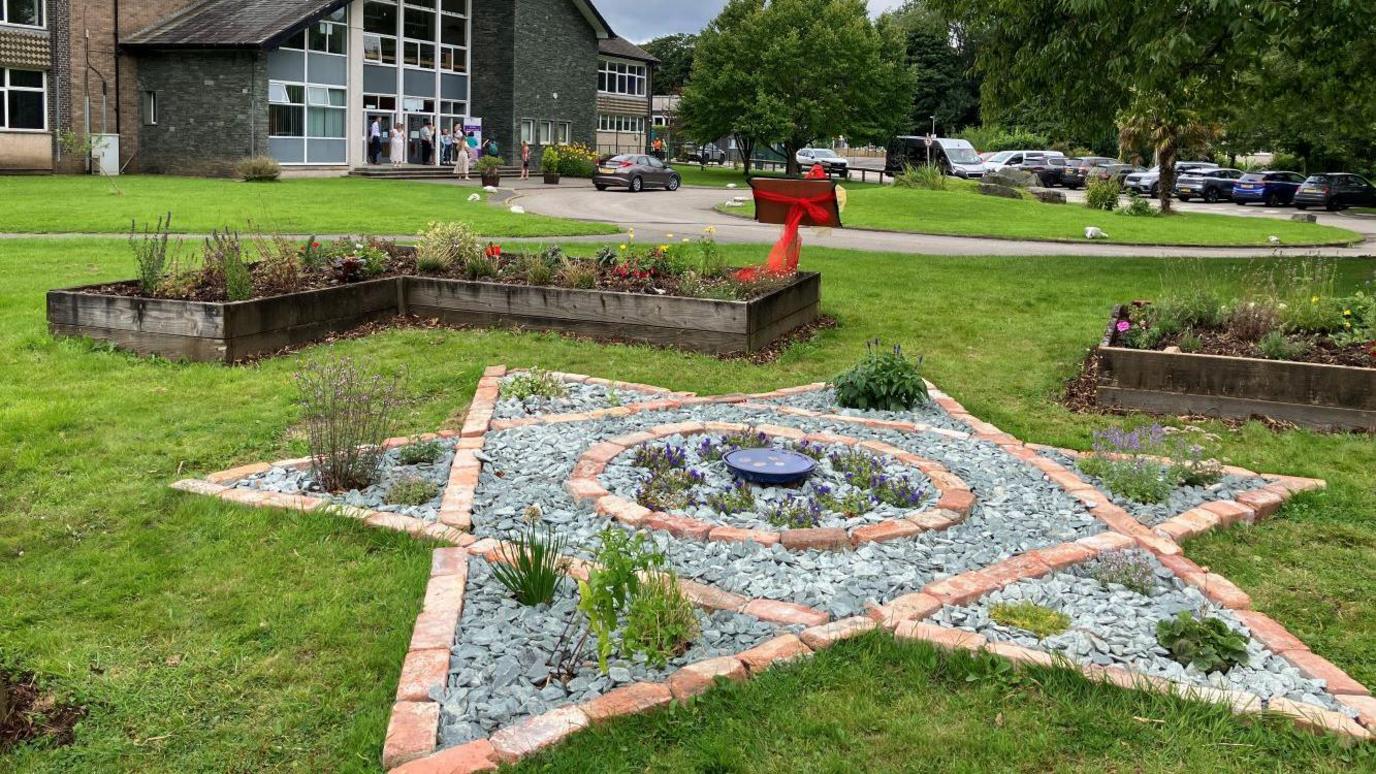
The Windermere Children were brought to Cumbria after being liberated from concentration camps
- Published
A memorial garden commemorating the time spent in the Lake District by 300 young Holocaust survivors has been unveiled by survivors.
About 300 Jewish children were brought to Troutbeck Bridge in Cumbria to start a new life after being rescued from concentration camps 80 years ago.
Survivor Bela Rosenthal, 83, said of the new country she found herself in: "There was green grass and the leaves and the trees and the woods, the fresh air, it was amazing."
Angela Cohen, whose father was one of the group, said the garden at the Lakes School would have made him "enormously proud that he hasn't been forgotten and their story hasn't been forgotten".
Ms Rosenthal, who was one of four Windermere Children who officially opened the garden on Thursday, has a recollection of not wanting to leave a concentration camp initially.
"Nobody had told us we'd been liberated, we were just shoved on the plane and we didn't know where we were going," Ms Rosenthal told BBC Radio Cumbria.
"We had no idea we were actually free."
The youngsters became known as the Windermere Boys, but have also since been referred to as the Windermere Children as there were also girls in the group.
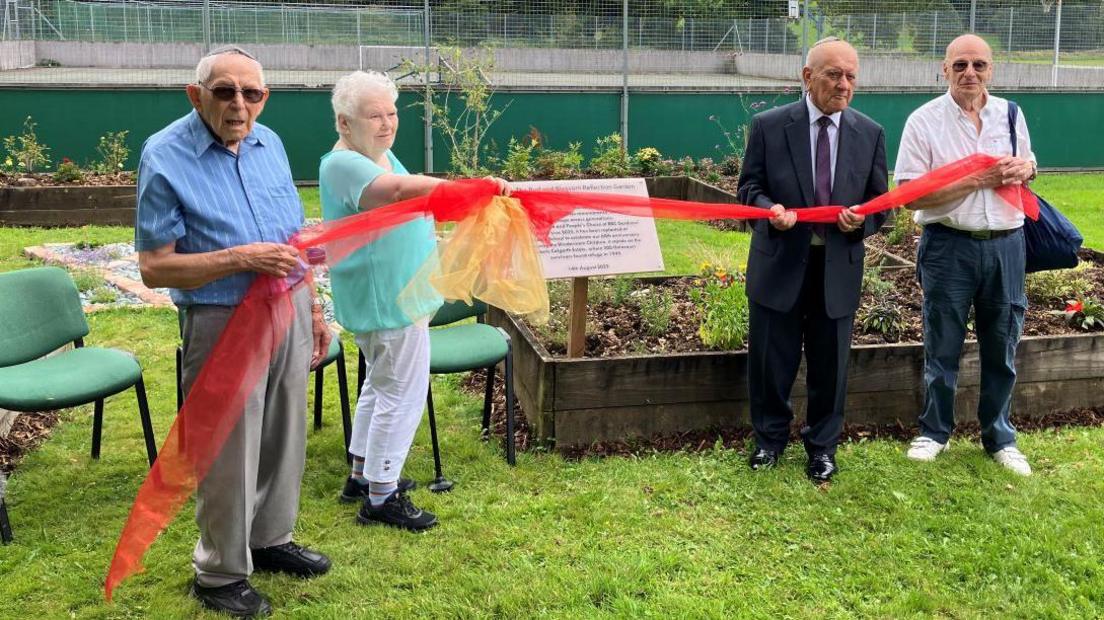
Bela Rosenthal (second from left) and Arek Hersh (second from right) were among the survivors to open the garden
The memorial garden is close to where the children lived and its Star of David design had been made using locally sourced brick and slate.
Many stayed for in the UK for their entire lives, becoming British citizens and raising British children.
Survivor Arek Hersh, 97, lived his life in the north-west of England, falling in love with the swimming sites.
"I like the Lake District very, very much," he said.
Trevor Avery, from the Lake District Holocaust Project, said it was an important part of Cumbria's story.
"Windermere should be really, really proud of it," he said
Mr Avery added the event had been "really emotional".
The Windermere Boys: Meet the survivors, the community that welcomed them and the children that are keeping their memory alive today
Follow BBC Cumbria on X, external, Facebook, external, Nextdoor and Instagram, external.
Get in touch
Do you have a story suggestion for BBC Cumbria?
Related topics
- Published27 January 2024
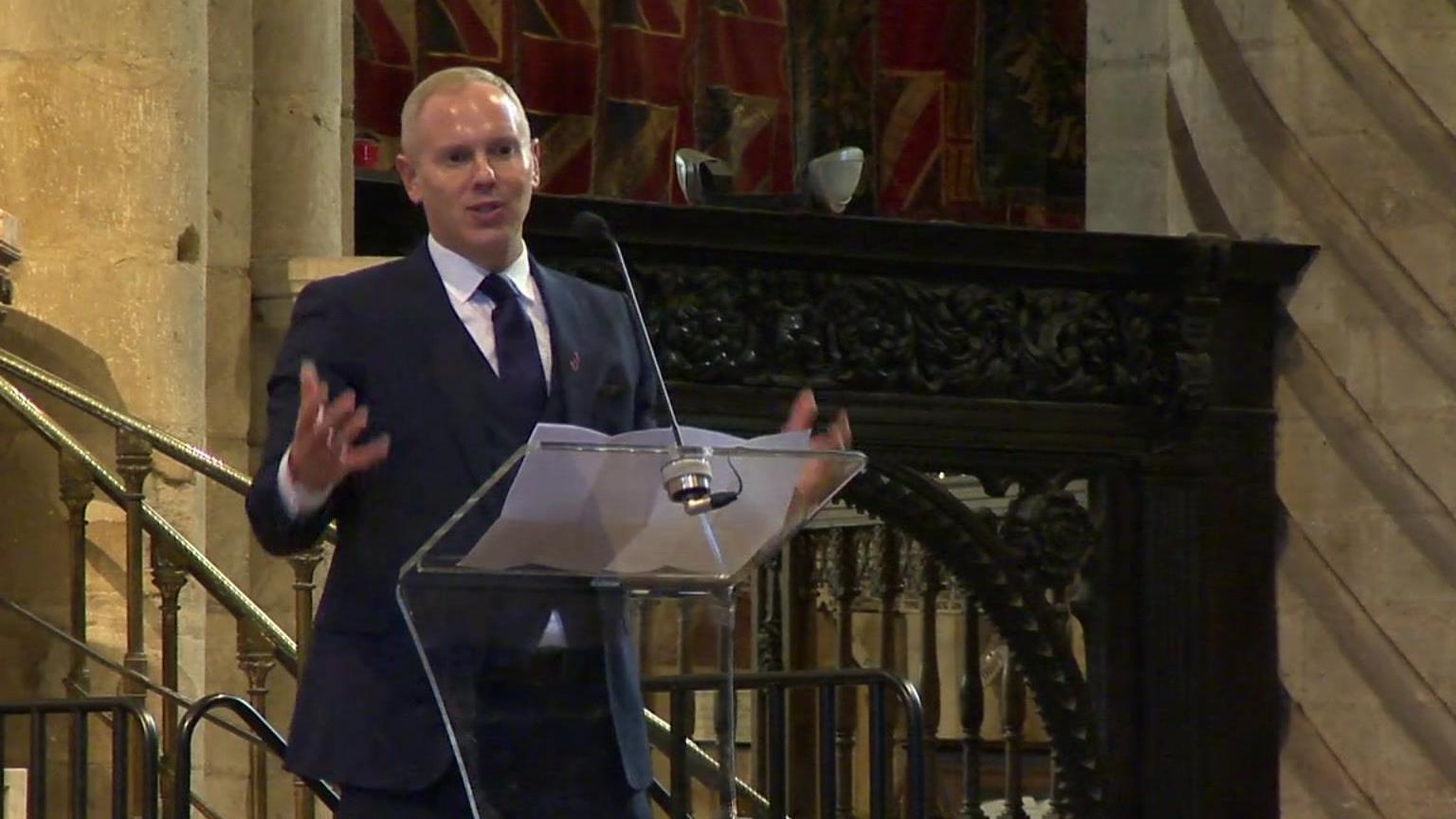
- Published9 May 2022
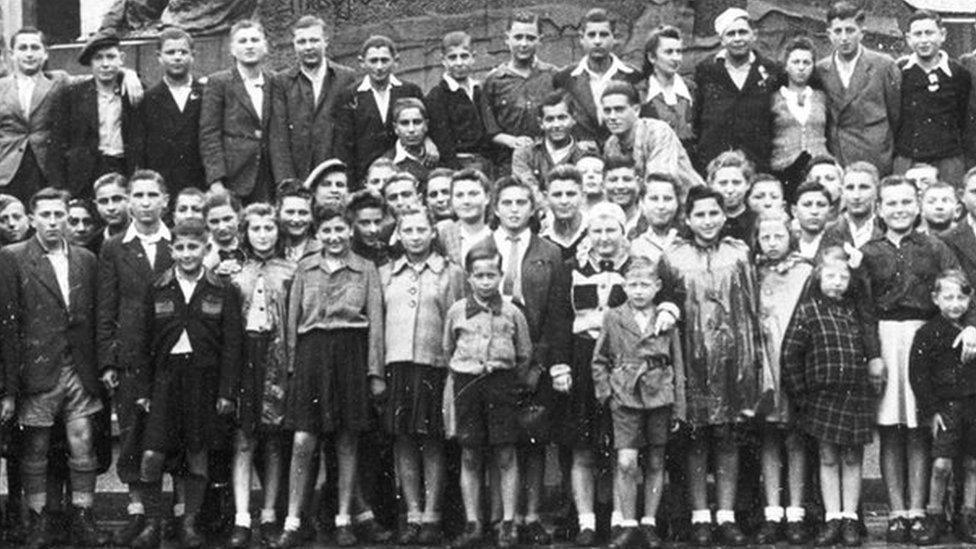
- Published22 December 2019
